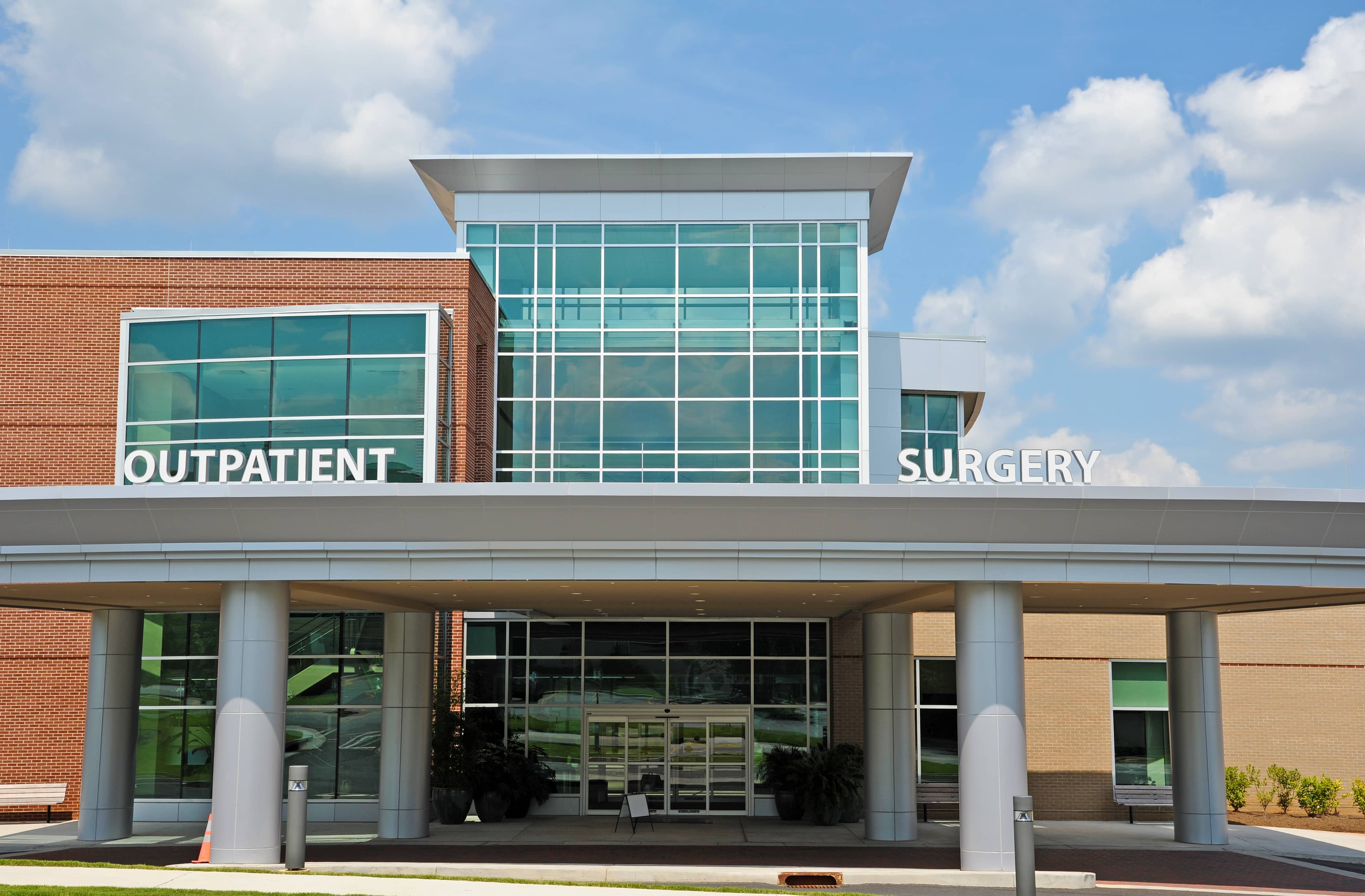Treatment
Outpatient Spine Surgery
Outpatient, or same-day, spine surgery is becoming increasingly common in the U.S. Advances in surgical techniques, anesthesia, and postoperative care have made it possible for many patients to safely undergo spine surgery and return home the same day. This approach offers numerous benefits, including faster recovery, lower costs, and the comfort of recovering at home.
The COVID-19 pandemic further fueled the growth of outpatient spine surgeries, as both patients and healthcare providers sought alternatives to hospital-based procedures to minimize exposure and reduce the risk of hospital-acquired infections.
As a result, more surgeons have adopted outpatient approaches for a variety of spine procedures; projections suggest that by 2027, more than 60% of spine surgeries will be performed in outpatient settings, reflecting a continued trend toward less invasive treatments and quicker recovery times.
What Is Outpatient Spine Surgery?
Traditionally, spine surgery was performed in a hospital setting, requiring an overnight stay or even longer hospitalization. However, outpatient spine surgery allows patients to have their procedure and return home on the same day.
Common outpatient spine procedures include:
- Lumbar microdiskectomy
- Cervical disk replacement
- Anterior cervical diskectomy and fusion (ACDF)
- Lumbar laminectomy
- Spinal decompression
How Did Outpatient Spine Surgery Become Possible?
Several key innovations have made outpatient spine surgery both possible and safe, allowing patients to recover at home the same day.
Advanced Anesthesia and Pain Management
Recent advances in anesthesia techniques have been crucial for outpatient spine surgery. These innovations include:
- Regional anesthesia, such as spinal and epidural blocks, which target specific areas of the body.
- Peripheral nerve blocks, used in procedures like lumbar spine surgery, which numb the legs or lower back area, allowing for a more localized (limited) and effective anesthetic approach.
- Multimodal pain management, which combines nerve blocks (local anesthesia) with analgesic medications (e.g., acetaminophen) and nonsteroidal anti-inflammatory drugs (e.g., ibuprofen, naproxen) to provide continuous pain relief.
By reducing the need for general anesthesia and opioids, these approaches help patients experience a faster recovery process with fewer side effects, allowing them to return to normal activities sooner.
Minimally Invasive Surgical Techniques
Minimally invasive spine surgery (MISS) techniques have revolutionized spine procedures, offering benefits such as smaller incisions, less tissue damage, and reduced blood loss. These techniques, including endoscopic and robotic-assisted surgeries, have significantly shortened recovery times.
Tranexamic acid (TXA), which is used to control bleeding during surgery, has further minimized the need for blood transfusions, contributing to quicker, safer recovery. As a result, many patients can return home the same day as their procedure with minimal complications.
Patient Selection
As outpatient spine surgery becomes more common, surgeons have gained valuable insights into which patients are ideal candidates for same-day discharge. This includes assessing factors like:
- Age and general physical health, including existing medical conditions such as heart or lung disease or diabetes.
- Mental health and cognitive function, as patients need to be able to follow post-operative instructions and recognize complications early.
- Home support. A stable home environment with family or caregiver assistance is essential to ensure that patients can safely recover without complications.
Early Mobilization and Post-Operative Therapy
Early mobilization, including getting patients out of bed and walking soon after surgery, has become a standard part of outpatient spine care. Studies have shown that starting physical therapy (PT) the same day as surgery leads to quicker recovery, fewer complications, and a lower risk of hospital readmission.
Focused therapy programs, including both physical and occupational therapy (OT), are critical for helping patients regain mobility and strength quickly, allowing for a more comfortable recovery at home.
Where Is Outpatient Spine Surgery Performed?
Outpatient spine surgery can be performed in two main types of facilities:
- Hospital operating rooms. Historically, most spine surgeries have been performed in hospital ORs.
- Ambulatory, or outpatient, surgery centers. Ambulatory surgery centers have been around in the U.S. for several decades. Some ambulatory surgery centers are housed within hospitals but function independently, while others are free-standing facilities. Some surgeons who are on the faculty at a hospital may choose to perform some or all of their outpatient procedures at an ambulatory surgical center.
Both types of facilities have advantages and disadvantages, and patients are often better suited to one location or the other.
What Is an Ambulatory (Outpatient) Surgery Center (ASC)?
An ambulatory surgery center is a facility specifically designed for outpatient surgery. Patient care and surgical protocols are typically more closely controlled by the surgeon. The location is typically easy to access and navigate.
These facilities have:
- A preoperative area to get you ready for surgery
- Operating rooms where surgery is performed
- Recovery areas for after surgery
Once a patient is fully recovered from anesthesia after surgery, they are picked up by a friend or family member and driven home that same day.
Is Outpatient Spine Surgery Safe?
Outpatient spine surgery is safe for appropriately selected patients, as it benefits from advances in surgical techniques, anesthesia, and post-operative care.
Studies consistently show high patient satisfaction and low complication rates. Whether you are a good candidate for outpatient spine surgery depends on:
- Your age and general health
- Existing medical conditions, such as heart or lung disease or diabetes
- Availability of a reliable support system at home
Your surgeon will assess your individual case to determine whether outpatient surgery is the right choice for you.
What are the Benefits of Outpatient Spine Surgery?
Outpatient spine surgery offers several advantages. Patients typically experience faster recovery in a familiar home environment, which can enhance comfort and reduce stress.
These are some other potential benefits:
- Overall risk of hospital-acquired infections is significantly lower, contributing to safer outcomes.
- Outpatient procedures tend to have lower overall costs compared to inpatient surgery, making them a more economical option.
How Should I Prepare for Outpatient Spine Surgery?
Preparation is key to a successful outpatient spine procedure: It includes planning ahead, addressing questions with your surgeon, and understanding recovery expectations. A strong support system of friends or family can ease the initial recovery period and reduce stress, helping you heal more effectively.
Arrange for a family member, friend, or neighbor to drive you home and assist you. If you do not have anyone to drive you home and/or help out at home, outpatient spine surgery may not be right for you.
- Prepare your home for recovery by setting up a comfortable rest area with easy access to essential items.
- Fill any prescribed medications, including pain relievers and anti-inflammatory drugs, before your surgery.
- Follow your surgeon's instructions about fasting and taking medications on the day of surgery. Your doctor may tell you to take your medications as usual or to skip certain medications that morning.
Where Can I Get More Information About Outpatient Spine Surgery?
If you are considering outpatient spine surgery, talk to your surgeon. They can provide a thorough evaluation and help determine the best treatment plan for you. Additionally, they can answer any questions you have about the procedure, recovery, and potential risks.
Contributed and/or Updated by
Peer-Reviewed by
AAOS does not endorse any treatments, procedures, products, or physicians referenced herein. This information is provided as an educational service and is not intended to serve as medical advice. Anyone seeking specific orthopaedic advice or assistance should consult his or her orthopaedic surgeon, or locate one in your area through the AAOS Find an Orthopaedist program on this website.








